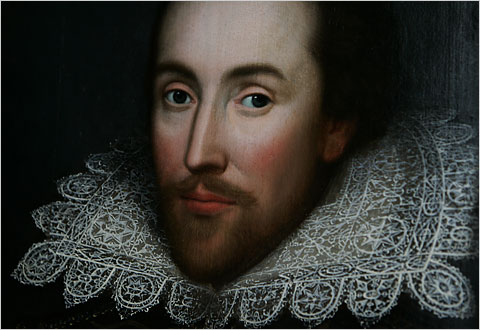
Much has been made of the recent flood of British-trained actors being cast in American roles. In the last few years, Henry Cavill was cast as Superman, Christian Bale played Batman, and David Oyelowo portrayed American civil rights leader Martin Luther King Jr., among many other Brits who landed distinctly American parts. Hollywood at large considers British actors more versatile, more professional, and more mature than their American counterparts. There are many reasons for that opinion, but the most common explanation is that young British actors are better trained, and the foundation of British actor training is Shakespeare.
He is the greatest playwright in the English language, and the undisputed most produced playwright of all time. Knowledge of Shakespeare is important for any working actor in order to make a living, and the acting lessons learned from performing Shakespeare can be applied to future roles.
What is it about these classical plays that make them so useful for actors?
An Exercise in Understanding
In the PBS TV show In Search of Shakespeare, acting teacher and playwright Caleen Sinnette Jennings says, “if you can perform Shakespeare, you can do almost anything.” Her assertion comes from the fact that Shakespeare’s text requires skills to unlock; skills that easily translate to modern script work.
On the surface, nothing about Shakespeare is familiar to contemporary readers. The words are uncommon, the rhythm of the sentences is antique, and to make interpretation more difficult, Shakespearean characters often speak in descriptive metaphors and similes that disguise their literal meaning. An actor must do intense detective work to understand Shakespeare’s language and then communicate their understanding to an audience.
Full-Body Workout
Most of Shakespeare’s plays have been adapted into film and television works, but at its purest, Shakespeare is performed for the stage. After familiarization comes the development of a performance, and there is no greater challenge for an actor than performing Shakespeare. The plays were written over 400 years ago and meant for performance on a barren stage. Today, actors have the responsibility of bringing complicated characters to life and unraveling convoluted plots for audiences that may have difficulty understanding the text.
Therefore, to ensure effective storytelling, Shakespearean actors are instructed to use all of their natural tools. Voice, physicality, facial expression, and thought are all used to communicate a character’s intention to the audience. Additionally, the unusual structure of Shakespearean dialogue forces actors to consider their pacing and cadence, which increases their awareness of timing. Over the course of a career in Shakespeare, this all-around approach to acting teaches thespians to think critically and creatively about their characters, and leads to consistently moving performances.
Proof in the Plum Pudding
The flood of British actors in American film and television is nothing new, but it is becoming more pronounced. Ian McKellan, Judi Dench, Laurence Olivier, Helen Mirren, and Patrick Stewart are some of the famous Brits who honed their acting skills on Shakespeare before becoming A-list Hollywood stars. Asked how Shakespeare prepared him for a career in film, Stewart said, “I think that the experience that we get in making a 400-year-old text work is exactly what you need for giving credibility and believability to fantasy, science fiction, and the like.” Can anyone argue with Professor X?
Perhaps the inaccessibility of Shakespeare is precisely what makes it such a great acting exercise. The characters, situations, and language are so foreign that no modern actor can literally relate, so they must lean on their learned techniques to act the parts. It is possible to be a good actor without knowing Shakespeare, but an examination of the British model of Shakespeare-based training suggests that it may not be the wisest approach.